Why Is My Cat's Nose So Darn Cold? (Should You Worry?)
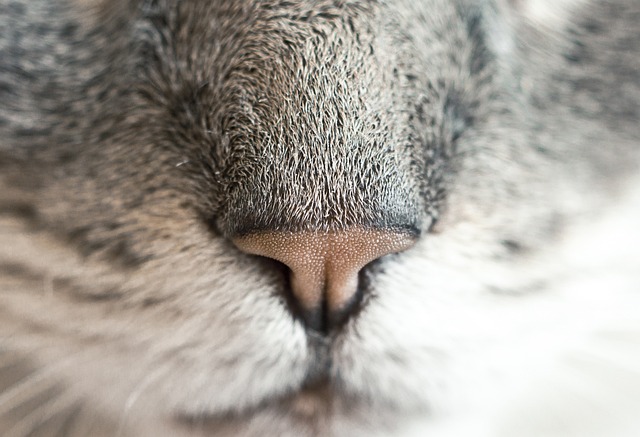
Worried sick about your feline friend's cold nose?
Wondering if it's a sign of something more serious?
Hold up, my feline-loving comrade! 😺
Let's dive into the mystery together and find out what's really going on.
Now, shall we begin?
On Cat Nose Temperature
A cat's nose temperature can vary due to factors like hydration, environment, and activity level. Some cats naturally have warmer noses, while others use a cool nose to regulate their body temperature. Checking their ears is a better indicator of fever. Nose temperature can change throughout the day and fluctuate as cats age.
Do you ever wonder if it's normal for your cat's nose to feel cold?
Well, here's the scoop - a cat's nose temperature can actually vary quite a bit. Factors like hydration, environment, and activity level all play a role in determining how warm or cool their little sniffer might be.
But hold on a minute...
Before you start panicking every time you touch your furry friend's cold nose, let me set the record straight.
The temperature of a cat's nose isn't some secret code that will unlock the mystery of their health.
Nope, not at all!
In fact, some cats naturally have warmer noses, while others deliberately use a cool nose as a way to regulate their body temperature.
So don't go jumping to conclusions just because your sneaky little furball has a chilly snout.
Now, here's a nifty tip for you:
If you're really concerned about your cat's temperature and want to check for signs of fever, forget about their nose.
Yep, you heard me right.
Instead, focus on their ears.
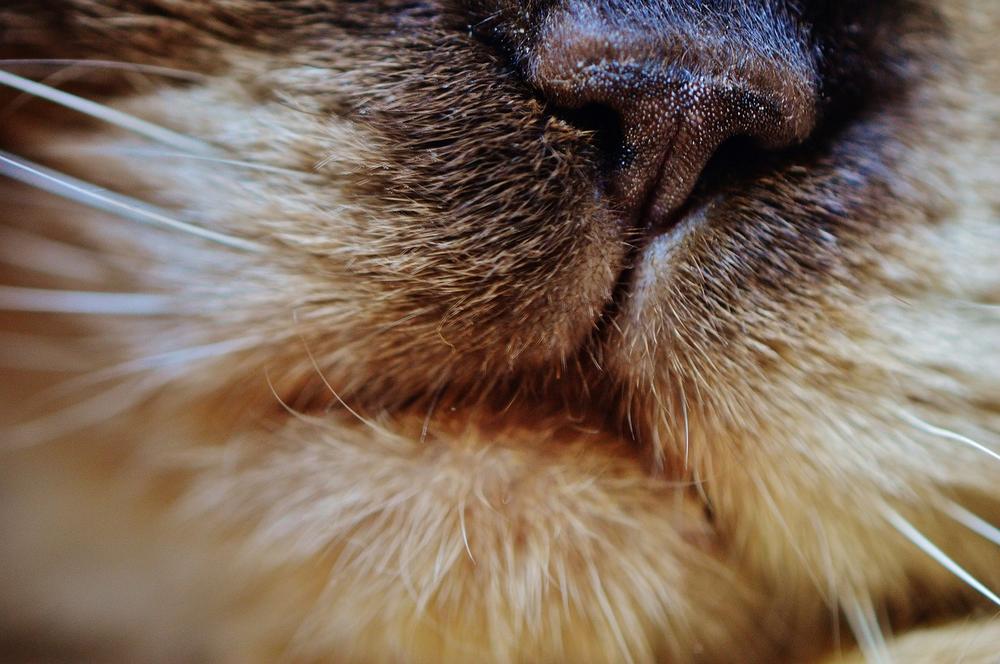
When your kitty is feeling chill, their ears will be cool to the touch.
And when they're slightly excited, their ears might be noticeably warmer.
Who knew, right?
Oh, but wait, there's more. Let's talk about something fascinating. Did you know that a cat's nose temperature can change throughout the day?
It's true!
In the morning, their nose tends to be cooler, while in the afternoon, it might feel a tad warmer.
Quite the up-and-down ride, wouldn't you say?
And here's another tidbit for you to chew on. As cats age, it's totally normal for their nose temperature to fluctuate. Yep, just like us humans, their bodies change over time.
So don't fret if you notice some variations in your feline friend's nose temperature as they grow older.
It's just a part of the natural aging process.
Ultimately, my friend, the nose is only one piece of the puzzle when it comes to determining your cat's all in all health.
So don't get too fixated on it.
Keep an eye out for other signs and symptoms that might indicate something more serious. Your furry pal's well-being is worth a thorough assessment, after all!
Main points I'll expand upon further down this article:
- A cool and moist nose is considered normal for a healthy cat.
- Environmental factors can affect a cat's nose temperature and moisture.
- Conduct regular home checkups to monitor your cat's overall health.
- Factors like temperature, humidity, and allergens can impact a cat's nose.
- Regular grooming helps maintain a cat's health and prevents hairballs.
- A dog's moist nose helps regulate body temperature and improves scent detection.
- A cat's cold nose may indicate good health and a well-functioning sense of smell.
- Nose problems in cats should be closely monitored, especially when accompanied by other symptoms.
- Changes in nose temperature or unusual discharge may indicate health issues.
- Environment and temperature conditions affect a cat's nose temperature, not just illness.
But let me tell you, a cat's nose is not just for show!
It serves multiple functions and can provide valuable insight into their health and well-being...
Your Cat's Nose Functions Go Way Behond Smelling
The Nose of Your Cat
We're about to dive into the captivating world of a cat's nose.
It's not just any ordinary body part, my friends.
Oh no, it has an array of functions that go way beyond smelling.
Let me tell you a little secret - your cat's nose is like a magical tool for detecting moisture and temperature. It helps them navigate their surroundings and stay in touch with what's happening around them. It's almost like a built-in radar system.
Now, here's the lowdown on your furry companion's nose.
In general, a cool and moist nose is completely normal.
But hey, don't start panicking if you notice some changes...
Weather fluctuations or alterations in their environment can throw things off a bit.
So if your cat's nose feels slightly different than usual, there's usually nothing to fret about, as long as they're displaying all in all good health. Seriously, no cause for alarm!
In fact, I strongly recommend all you awesome cat parents out there to regularly perform nose-to-tail checkups at home.
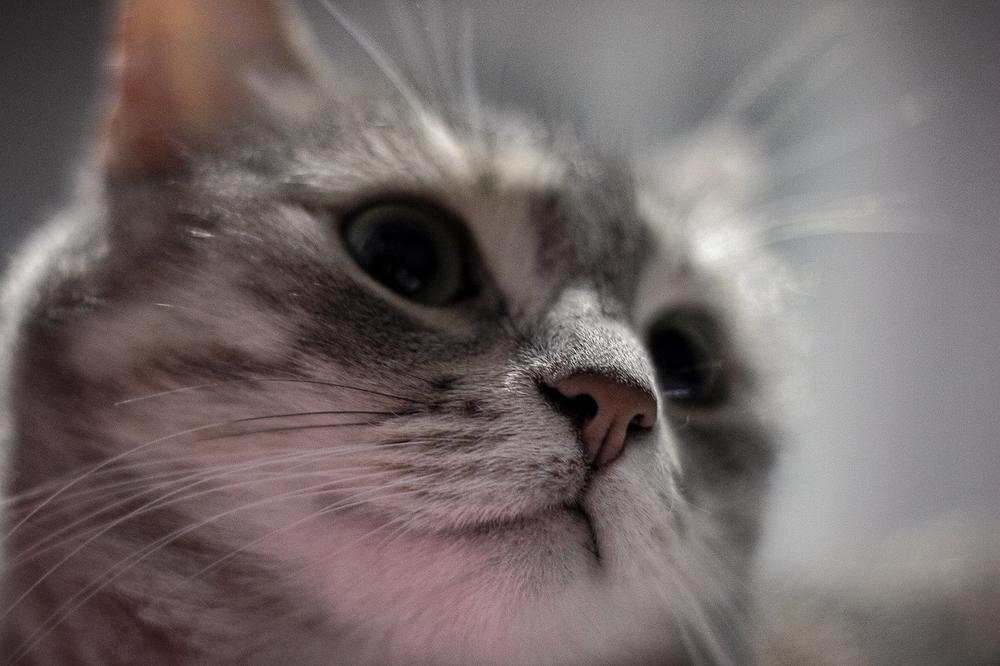
You should keep tabs on your feline BFF's well-being.
But guess what?
Temperature and humidity aren't the only factors that affect your cat's nose.
Nope, there are other elements at play too.
Allergens and environmental conditions have the power to influence that adorable little sniffer.
But wait, hold on tight!
While you're examining your cat's fabulous nose, why not take the opportunity to also keep track of their in essence health and grooming?
Watch out for any sneaky fleas, give their claws a snip to keep them in tip-top shape, and grab that trusty brush to prevent pesky hairballs.
Wow, we covered a lot of ground, didn't we?
Your cat's nose is truly remarkable, my friend.
Think of it as their very own superhero power, built right into their adorable little face.
And now, let me share with you the fascinating correlation between a cat's wet nose and their heightened sense of smell!
Cat's Noses Are Typically Wet for Picking Up Scents
Cats' wet noses serve the purpose of enhancing their sense of smell by dissolving scent molecules. This moistness helps them pick up intriguing scents in their surroundings, while also regulating their body temperature.
Let me tell you something, my friend – cats have a darn good reason for having wet noses.
I'm serious. The wetness on their nose actually helps them pick up all those intriguing scents around them. You know how your tongue dissolves food when you eat?
Well, that wet cat nose works in a similar way, carefully dissolving scent molecules so that they can get a whiff of what's going on.
But here's the thing – dogs have got this going for them too.
Their noses might be a tad different, but they serve an equally important purpose.
Dogs have this fantastic mucous layer on their nose that not only absorbs those enticing scent chemicals but also lets them taste those dissolved scents when they lick their nose.
How about that?
Oh, and let me tell you, these moist noses aren't just there to look cute. Nope, not at all. In fact, dogs use their wet little noses to help regulate their body temperature and keep themselves as cool as a cucumber.
Now, when it comes to cats, a cold and wet nose is actually a sign of good health. That mucus that makes their nose wet does wonders in dispersing heat, and believe it or not, it could even enhance their sense of smell.
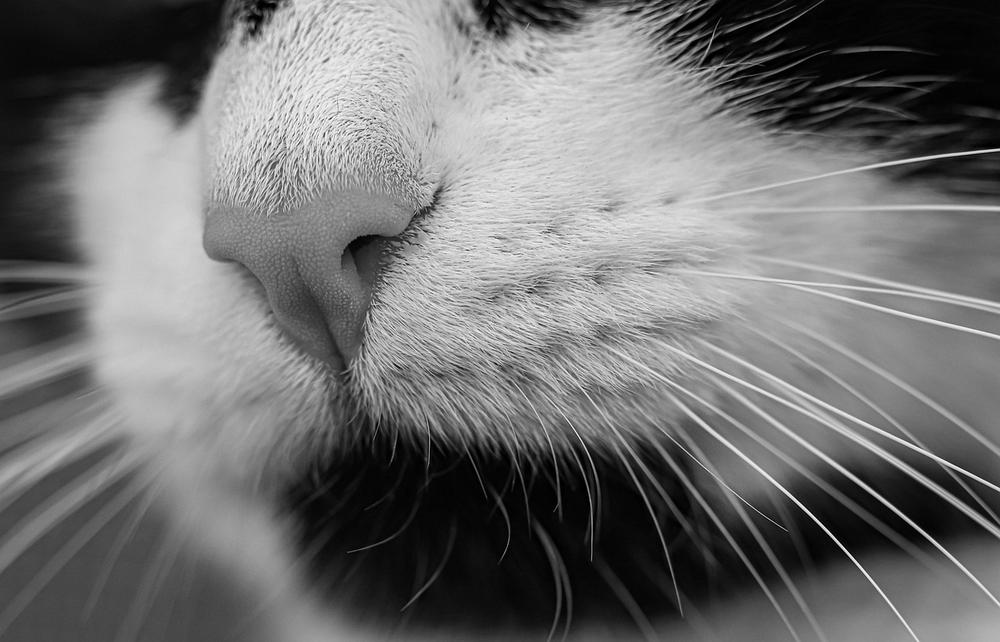
So if you come across a kitty with a chilly sniffer, don't worry – it might just mean they're feeling pretty awesome.
But before you start jumping to conclusions, not every cat with a cold nose has a wet nose.
This is where the environment comes into play. Whether their nose is wet or dry can depend on the conditions around them.
So keep that in mind.
Oh, and one more thing!
If you happen to be burning candles or incense in your home, it might result in a slightly runny nose for your furry friend.
Who would've thought, right?
And by the way, if you're still curious about why cats' noses get wet when they purr, I have just the answer for you.
In my blog post Why Do Cats Noses Get Wet When They Purr, I delve deeper into this fascinating topic and uncover the secret behind those wet noses.
Trust me, you won't want to miss out on this insightful explanation.
Check it out and satisfy your curiosity!
Nose Problems in Cats
Monitor your cat's nose for signs of health issues
Your cat's nose can give you valuable information about their overall health. It's like a window into how they're feeling.
So, it's important for you to keep an eye on it.
Look out for changes in nose temperature and texture
Now, here's the tricky part:
If you notice that your furry friend's nose feels unusually dry or wet, take note. These changes might indicate something more serious going on with your precious companion.
And if you observe additional symptoms like decreased appetite, weight loss, or a lackluster coat, it's time for you to consult with your vet.
But wait—don't just rely on nose temperature alone.
You also need to pay attention to other signs.
Have you noticed your kitty being extra tired lately?
Seeming less interested in food?
Maybe they've been pawing at their mouth.
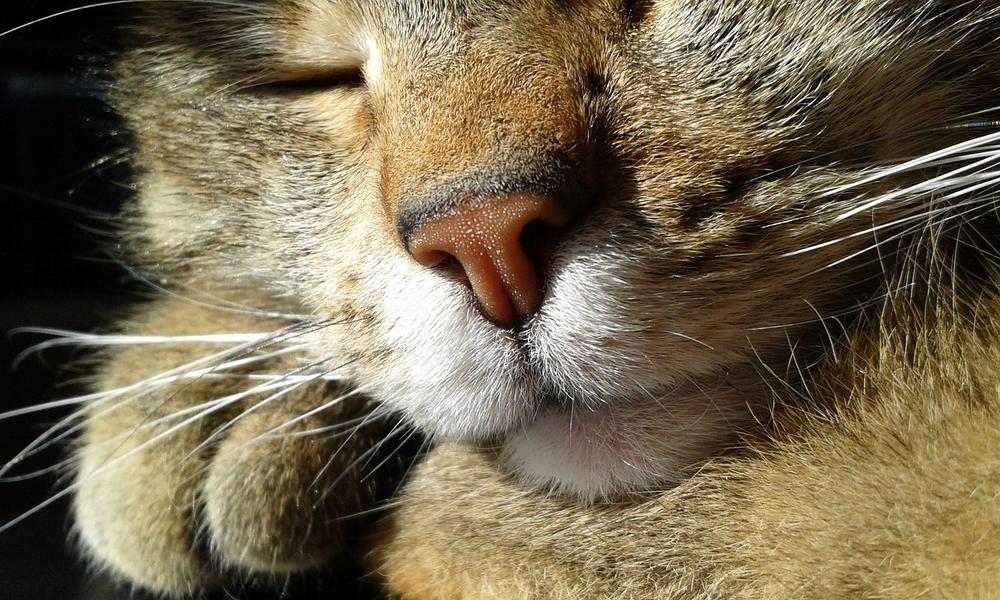
These could all be clues that nose problems mean more than meets the eye.
Unusual nose discharge or changes require immediate attention
If your feline friend suddenly develops thick mucus or crustiness in their nose, it might be an upper respiratory infection—yikes!
Better hurry and get those claws to the nearest vet ASAP!
And listen up:
Sudden changes in the appearance of the nose, such as lumps, scratches, swelling, or ulcers?
Yeah, definitely not good news.
Your furry friend needs some professional help right away.
Very dry, flaky, cracked, or ulcerated noses should never be ignored.
They could be signs of infectious, cancerous, or autoimmune diseases.
Make sure you keep those regular visits to the vet on your calendar to ensure your feline friend stays purrfectly healthy.
But wait, here's something interesting you should know!
While changes in a cat's nose can be indicators of health issues, sometimes it's the surrounding environment that plays a bigger role...
Why a Cat's Nose May Be Dry or Warm
A cat's nose can get dry or warm due to certain medications, including antihistamines.
However, the state of a cat's nose is usually affected by its surroundings rather than its health. So, if your cat's nose feels warm and dry, it doesn't necessarily mean it's sick; it could just be the environment. On the other hand, if your feline friend's ears feel warm to hot, it might indicate a fever and warrant attention. It's always a good idea to have a basic pet first-aid kit at your disposal, especially when you're traveling with your cat. Preparing for such situations ensures their wellbeing and your peace of mind.
And that wraps up today's article.
Before you head out, can I ask you something? Did my blog post prove useful for you? If it did, I would truly appreciate it if you spread the word among your loved ones and friends. Sharing is easy – just click on any of the social media icons to instantly share. Thank you so much!
Talk soon,
-Sarah Davis